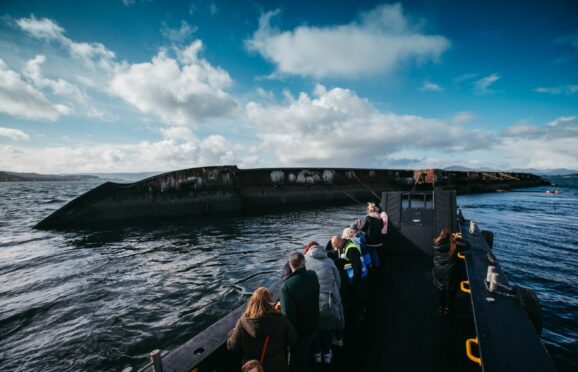
It’s like the plot of a Pixar movie – the unlikely friendship between Tonka, the military landing craft, and a pod of bottle-nosed dolphins who have made their home in the Clyde.
Every week since the start of the summer, Tonka and the dolphins have met on the waves for adventures on the Firth. And they have brought day trippers along for the ride by the thousand.
Tonka, a 37-year-old former Royal Navy craft, has become a familiar and distinctive sight chugging around the waters between Cumbrae and Glasgow, taking sightseers to see distinctive Clyde landmarks like the wreck of the MV Captayannis between Greenock and Helensburgh and the deserted island of Little Cumbrae.
The trips were the lockdown brainchild of Inverclyde skipper Ronnie Doolan, and became popular with people looking for days out after Covid restrictions prevented travel.
Now the pod of dolphins following the little yellow boat has led to visitors from all around Scotland flocking to the Clyde by the thousand.
Doolan said: “When we started up earlier this season, the dolphins appeared on the very first trip we did. I hadn’t been aware that a pod of dolphins was in the Clyde at this point, and I couldn’t believe it when they came alongside the boat.
“They’ve hung around all season. I’d say they are there 50% of the time when we’re out. They’re such clever animals. They’ve started to actually come to the boat. They recognise Tonka’s sound signature now, and they love to ride on our waves.
“They see Tonka from 100m away and they come over. Then I’ll speed up and they come around behind us to surf on our waves.
“Tonka is quite a fast vessel and gives off big waves, which the dolphins love to ride on the top of. I can only assume it must be like going downhill for them. They seem to do it for fun. They come amazingly close to the boat, they obviously feel very comfortable.
“The passenger reaction is incredible – people are literally jumping up and down. Now the first thing the passengers ask is ‘are the dolphins out today?’.
“But we don’t run dolphin-spotting trips, because sometimes the answer is yes, and sometimes it’s no. They seem to come around the Cloch Lighthouse area then up to Greenock, and then they go off for a few days.”
Now the cetaceans are the most popular new family on the Clyde, becoming stars of social media and charming daytrippers by the thousand with their playful antics.
When Ronnie started the trips, Tonka’s main objective was shuttling passengers between the wreck of the MV Captayannis, a Greek-registered ship that foundered during a storm 47 years ago, and the James Watt Marina in Greenock.
Known locally on both sides of the Clyde as the “sugar ship”, the 4,576-tonne wreck has lain on her starboard side on a sandbank since January 27, 1974, and has become a focal point for communities on the lower Clyde.
Yet closer encounters with the vessel have previously been beyond the reach of all but a few with private access to the water. (Some foolhardy souls have previously landed in trouble for sailing out, clambering on the hull and having a barbecue. And, earlier this year, paddle boarders had to be rescued after paddling out to the wreck.)
Like many owners of small businesses, Doolan worried his was heading for the rocks when the pandemic forced him to tie up. But the solution was right in front of him – and had been there his whole life.
Before Covid, he made a living with his workboat company Mirren Marine, scooping up small maintenance jobs on the River Clyde, and running a private charter company for corporate away-days after being made redundant from his job as a skipper with Clydeport.
Yet, when March 2020 rolled around, it signalled a mayday call for most of his work and he sold his charter vessel.
Pondering his next move, he took inspiration from the old rusting hulk out in the water.
The 46-year-old dad-of-four said: “I’d come home after a day’s charters and I’d mention to my wife how many people would comment on the sugar ship, and I’d joke to her that we should just do trips there. She’d laugh at me and say if that was the case, it’s been there for 47 years, someone would have done it by now.
“It’s been hiding in plain sight.”
His main company Mirren Marine originally took Tonka on as a gunship-grey decommissioned Navy vessel.
“We operated her as a workboat before the pandemic. She used to hang on the side of Navy warships,” he said.
“But, because she’s an open boat, we realised that, if you were standing outside, it made social distancing possible with the Covid rules at the time when we started. I saw an opportunity, cleaned the boat up, painted her yellow, added some safety features and went for it.”
One social media post later, and the newest leisure pursuit on the Clyde was afloat, powered by word of mouth, charming wildlife encounters and social history.
The skipper said: “A lot of older passengers remember the storm. People have seen the sugar ship out of their window for 47 years, and you can see older people on the boat telling younger people the story of the day it happened, their version of events and where they were when it happened.”
Since dipping Tonka’s toe in the water last summer, Ronnie, who lives in Skelmorlie, Ayrshire, has taken about 7,000 passengers for a sail.
The daytrip company, Clyde Charters, has expanded the 12-berth boat’s horizons with trips to Little Cumbrae as well as running an upper-Clyde sightseeing cruise, ferrying day-trippers from Braehead pontoon in Renfrewshire up to the former heart of the Clyde shipbuilding industry as far as the Govan Graving Docks, with the PS Waverley and TS Queen Mary nearby.
Last week, Doolan ran several free trips for NHS workers as a mark of appreciation for their work in the pandemic. The trips are so popular they have extended the season, with plans to run all through the winter with short-notice trips depending on the weather.
The skipper, who gained his sea legs as a child with his grandfathers launching little fishing boats from the Mirren Shore in his hometown of Port Glasgow, said: “It’s a beautiful part of the country, and we’ve had people come from all over Scotland come out on Tonka.
“We give the passengers a close-up of the huge cruise ships at the Ocean terminal in Greenock, and the sugar ship. But when the dolphins put in an appearance, it’s extra special.”
Experts: Rare visitors having fun
Porpoises are a regular sight on the Firth of Clyde, but dolphins are rare visitors, according to experts.
The Clyde dolphins have likely found a suitable fish stock since taking up residence in the river this summer, according to Morven Summers of the Hebridean Whale and Dolphin Trust.
“Bottlenose dolphins are a coastal species and move around inshore waters in search of food. Off the west coast, we have a relatively small population, about 30 to 40 animals, inhabiting the area between Skye and Kintyre, including the Clyde basin.
“We seemed to have a number of bottlenose dolphins off the west coast of Mull this summer, too.
“Bottlenose dolphins are much larger than porpoises – Scottish dolphins can reach almost double the length of a porpoise. Dolphins are also much more gregarious, approaching boats and leaping clear of the water, while porpoises are shyer and more elusive. Porpoises have a smaller triangular fin, which you can see briefly when they break the surface, while bottlenose have a more sickle-shaped, larger dorsal fin. We can identify individual dolphins from their dorsal fins – which are as unique as fingerprints to humans.”
In 2018, a pod of killer whales spent several weeks in the Clyde, feeding on seals. The organisation encourages people to record their sightings of whales and dolphins around Scotland on the Whale Track app.
And as for whether the Clyde dolphins are able to recognise Tonka, Morven said: “Dolphins are well-known for approaching vessels to ride the bow wave. We’re not 100% sure why they do this but suspect that the main reason is simply to have fun. It has probably come from an adaption from surfing on large waves and nearshore breakers, indeed they’re also seen to do it on the pressure wave created at the front of the great whales too.
“It’s impossible to say whether the Clyde dolphins have come to ‘know’ the Clyde Charters vessel, but it sounds like they enjoy interacting with it.”

Enjoy the convenience of having The Sunday Post delivered as a digital ePaper straight to your smartphone, tablet or computer.
Subscribe for only £5.49 a month and enjoy all the benefits of the printed paper as a digital replica.
Subscribe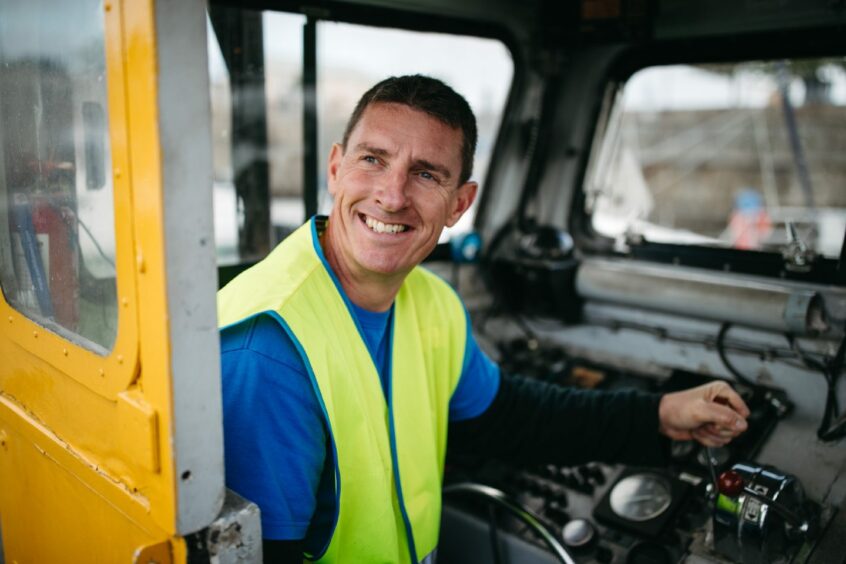 © Andrew Cawley
© Andrew Cawley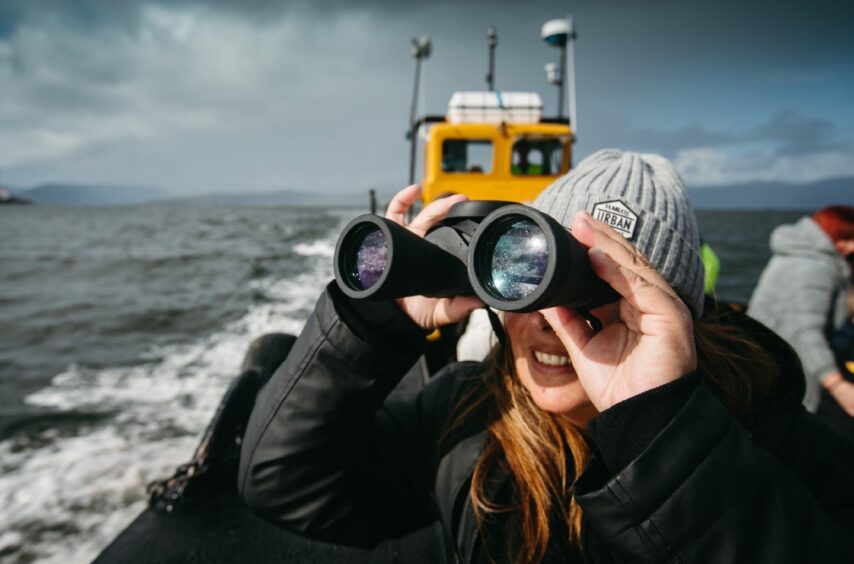
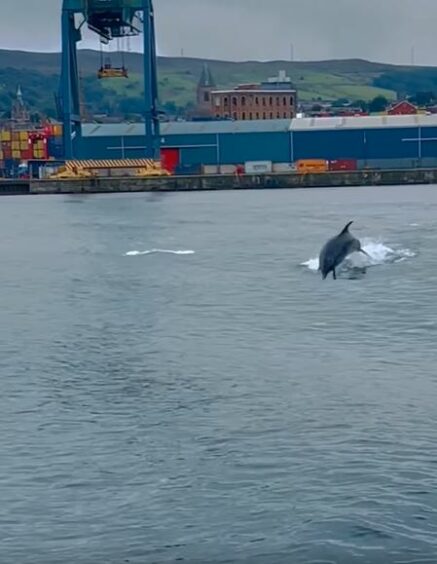
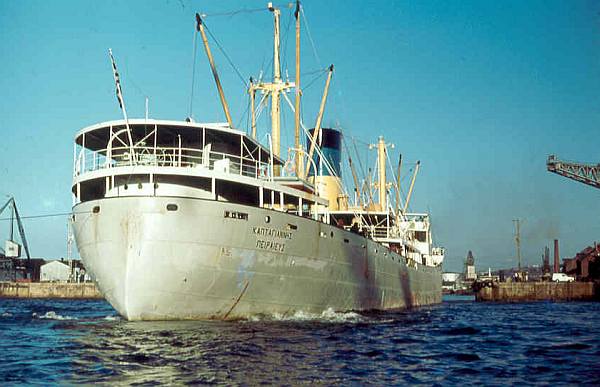
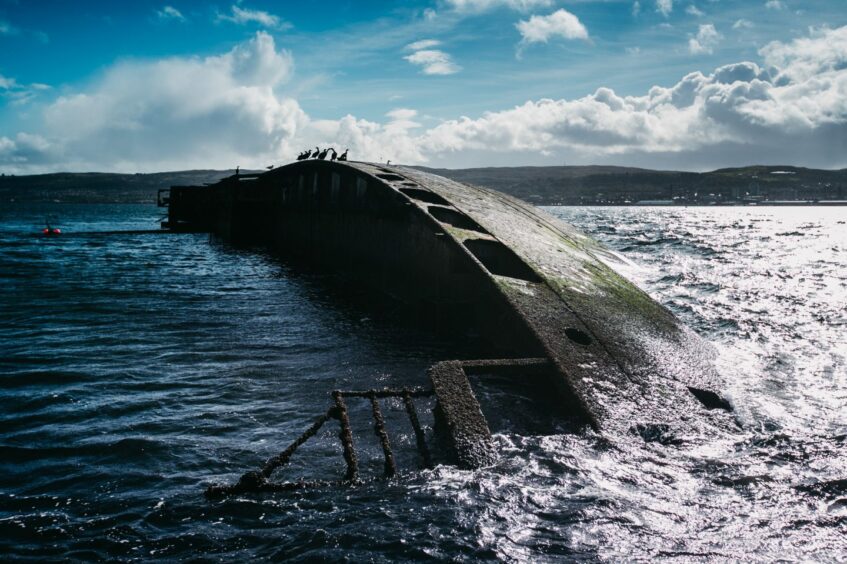 © Andrew Cawley
© Andrew Cawley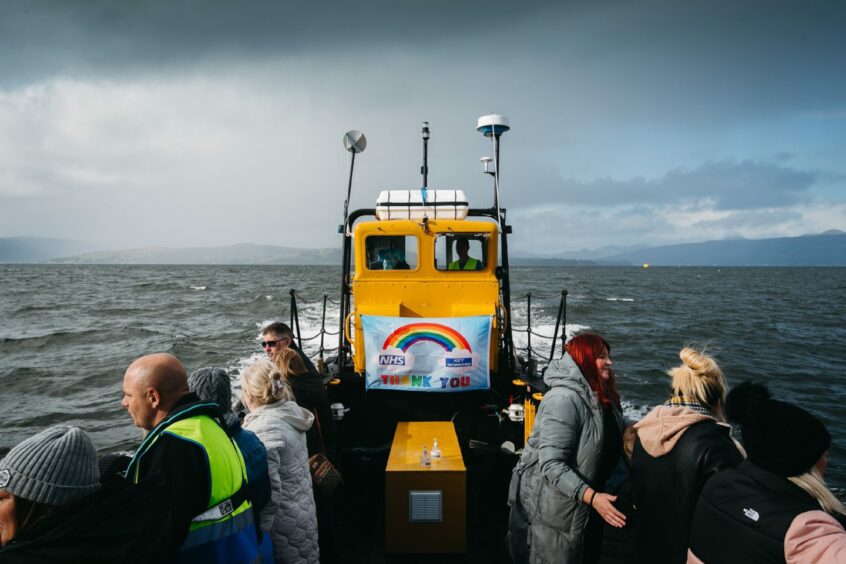 © Andrew Cawley
© Andrew Cawley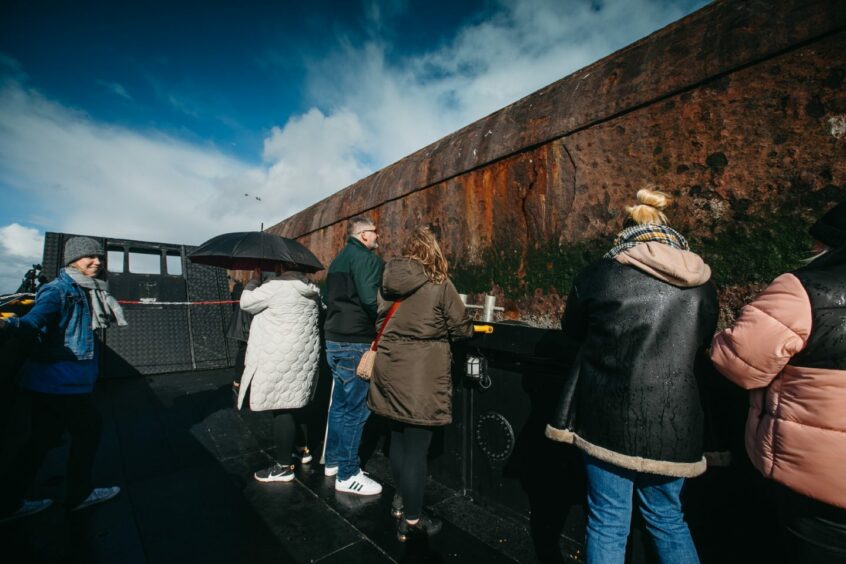 © Andrew Cawley
© Andrew Cawley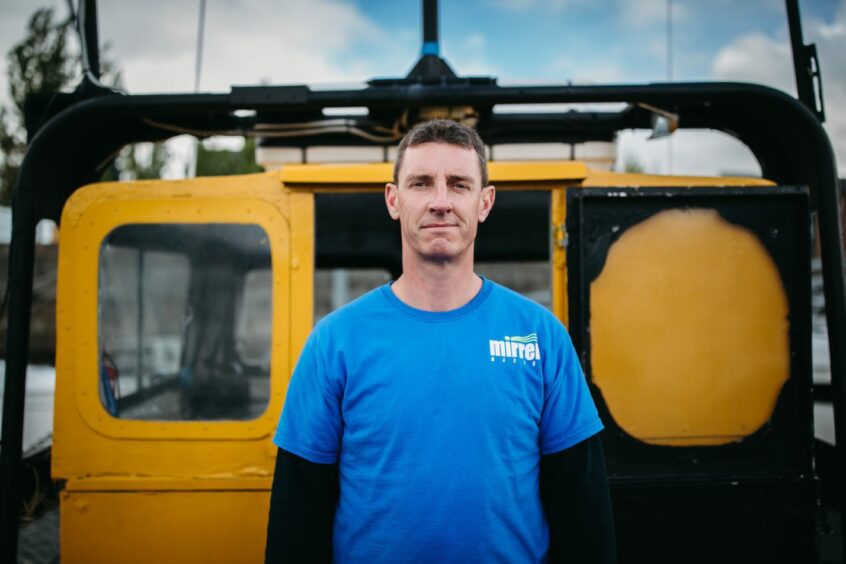 © Andrew Cawley
© Andrew Cawley